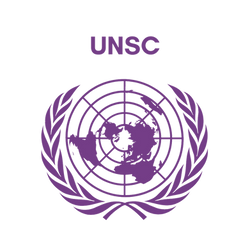

About the Committee
The United Nations Security Council (UNSC) is one of the six principal organs established under the UN Charter and holds primary responsibility for maintaining international peace and security. It is the only UN body empowered to issue legally binding resolutions and authorize sanctions or military intervention. The Council comprises of fifteen members, five permanent members with veto power, and ten non-permanent members elected for two-year terms on a regional basis. Meeting year-round, the UNSC is tasked with responding swiftly and effectively to global security crises. This year at JBCN Oshiwara MUN, the UNSC will deliberate on the escalating threat of transnational terrorism in Taliban-controlled Afghanistan.
Since the Taliban’s return to power in August 2021, the country has witnessed a resurgence of extremist activity, particularly from groups like ISIS-K, Al-Qaeda, and the Haqqani Network. The absence of a recognized central government, weakening of counterterrorism mechanisms, and limited international oversight have created a haven for these non-state actors. Delegates will be expected to evaluate the Taliban’s accountability, regional power dynamics, and the global community’s options for intervention. The objective is to establish a multilateral framework that ensures regional stability while combating the spread of terrorism. As the only body with enforceable authority, UNSC’s decisions carry significant weight in shaping international relations and conflict resolution efforts.

 |  |  |  |  |
|---|---|---|---|---|
 |  |  |  |

